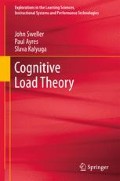Abstract
Natural environments tend to be both highly complex and highly variable. The frequently immeasurable number of variables associated with natural environments tends to be in constant flux. Most animals and plants must survive in complex, variable environments dealing with day and night, summer and winter, drought and flood. Any natural information processing system must find a way to handle this complexity and variability. Nevertheless, despite the complex, variable environment in which a natural information processing system must function, it must be able to treat its environment as familiar and predictable. It must be able to ignore variability that does not matter to its functioning while responding to variability that does matter. In one sense, the manner in which this complexity is handled is straightforward. Immense complexity is handled by immense information stores. Natural information processing systems build sufficiently large information stores to handle most of the vagaries inherent in their environments.
Access this chapter
Tax calculation will be finalised at checkout
Purchases are for personal use only
References
Bartlett, F. C. (1932). Remembering: A study in experimental and social psychology. Oxford/England: Macmillan.
Chase, W. G., & Simon, H. A. (1973). Perception in chess. Cognitive Psychology, 4, 55–81.
Chi, M., Glaser, R., & Rees, E. (1982). Expertise in problem solving. In R. Sternberg (Ed.), Advances in the psychology of human intelligence (pp. 7–75). Hillsdale: Lawrence Erlbaum.
Chiesi, H. L., Spilich, G. J., & Voss, J. F. (1979). Acquisition of domain-related information in relation to high and low domain knowledge. Journal of Verbal Learning and Verbal Behavior, 18, 257–273.
De Groot, A. (1965). Thought and choice in chess. The Hague: Mouton. Original work published 1946.
Egan, D. E., & Schwartz, B. J. (1979). Chunking in recall of symbolic drawings. Memory and Cognition, 7, 149–158.
Ericsson, K. A., Krampe, R. T., & Tesch-Römer, C. (1993). The role of deliberate practice in the acquisition of expert performance. Psychological Review, 100, 363–406.
Jeffries, R., Turner, A., Polson, P., & Atwood, M. (1981). Processes involved in designing software. In J. R. Anderson (Ed.), Cognitive skills and their acquisition (pp. 255–283). Hillsdale: Lawrence Erlbaum.
Kirschner, P. A., Sweller, J., & Clark, R. E. (2006). Why minimal guidance during instruction does not work: An analysis of the failure of constructivist, discovery, problem-based, experiential, and inquiry-based teaching. Educational Psychologist, 41, 75–86.
Kotovsky, K., Hayes, J. R., & Simon, H. A. (1985). Why are some problems hard? Evidence from Tower of Hanoi. Cognitive Psychology, 17, 248–294.
Luchins, A. S. (1942). Mechanization in problem solving – The effect of Einstellung. Psychological Monographs, 54, 95.
Piaget, J. (1928). Judgement and reasoning in the child. New York: Harcourt.
Portin, P. (2002). Historical development of the concept of the gene. The Journal of Medicine and Philosophy, 27, 257–286.
Schneider, W., & Shiffrin, R. M. (1977). Controlled and automatic human information processing: I. Detection, search, and attention. Psychological Review, 84, 1–66.
Shiffrin, R. M., & Schneider, W. (1977). Controlled and automatic human information processing: II. Perceptual learning, automatic attending and a general theory. Psychological Review, 84, 127–190.
Simon, H. A., & Gilmartin, K. (1973). A simulation of memory for chess positions. Cognitive Psychology, 5, 29–46.
Stotz, K., & Griffiths, P. (2004). Genes: Philosophical analyses put to the test. History and Philosophy of the Life Sciences, 26, 5–28.
Sweller, J. (1980). Transfer effects in a problem solving context. The Quarterly Journal of Experimental Psychology, 32, 233–239.
Sweller, J., & Cooper, G. A. (1985). The use of worked examples as a substitute for problem solving in learning algebra. Cognition and Instruction, 1, 59–89.
Sweller, J., & Gee, W. (1978). Einstellung, the sequence effect, and hypothesis theory. Journal of Experimental Psychology: Human Learning and Memory, 4, 513–526.
Author information
Authors and Affiliations
Corresponding author
Rights and permissions
Copyright information
© 2011 Springer Science+Business Media, LLC
About this chapter
Cite this chapter
Sweller, J., Ayres, P., Kalyuga, S. (2011). Amassing Information: The Information Store Principle. In: Cognitive Load Theory. Explorations in the Learning Sciences, Instructional Systems and Performance Technologies, vol 1. Springer, New York, NY. https://doi.org/10.1007/978-1-4419-8126-4_2
Download citation
DOI: https://doi.org/10.1007/978-1-4419-8126-4_2
Published:
Publisher Name: Springer, New York, NY
Print ISBN: 978-1-4419-8125-7
Online ISBN: 978-1-4419-8126-4
eBook Packages: Humanities, Social Sciences and LawEducation (R0)

